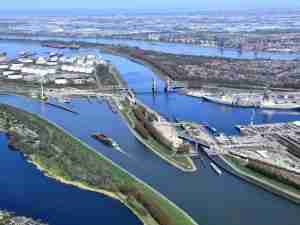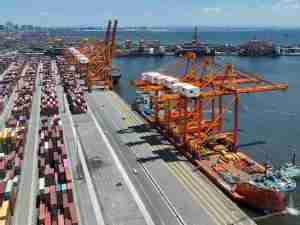The EU agreed last week to freeze the assets of Iran's central bank as part of further sanctions aimed at stepping up pressure on Iran's disputed nuclear program.
The tougher trade embargo has meant major EU banks have pulled back from financing grain shipments to Iran, a major importer of foodstuffs and animal feed.
"The myriad of sanctions have worked to the point where the Iranian banking system is virtually defunct, thereby not allowing international trade houses to receive workable letters of credit," one European grain trader said. "Their ships are stopped while people figure out how to get payment done, it's a mess."
Industry sources said a number of international trade houses are unable to deliver their grain at the moment.
"The exporters cannot unload without payment as they would face multi-million dollar losses if they do not get their money," another grain trader said.
"People are already facing losses on deals because of the delays in unloading. The importers cannot pay cash as the shipments are too big. It is a total nightmare."
The delays have meant that sellers of the cargoes have had to pay up to $35,000 a day in costs to ship owners. While some have speculated that cargoes could be diverted, other trade sources said it would not be financially viable given the amount of costs already involved.
"The demurrage costs are really hurting everyone at the moment. It's not feasible to find new destinations," a trade source said.
Demurrage costs are payable to a ship owner by a charterer for a delay for which the owner is not responsible.
Ship Delays
Iran imports around 4.5 million tons of grain a year, including about 3.5 million tons of corn, the leading world grain for animal feed, according to International Grains Council figures. It ranks among the top 10 global importers of maize.
The trade source said up to 350,000 tons of grain, especially milling wheat from Russia and corn and feed wheat from Ukraine, were stuck outside ports.
"Some vessels have been waiting up to three weeks," the source said. "Sellers can't discharge because of payment issues due to the latest EU sanctions. Nobody seems to know what to do."
At Bandar Imam Khomeini, one of the country's largest grain terminals, at least nine dry bulk vessels were anchored off the port with a further vessel on its way to the area, AIS ship tracking showed.
"There are now 11 to 12 ships waiting to unload. About 90 percent of the cargo is grains, mostly from Russia and Ukraine or elsewhere in the Black Sea region," another grain trader said.
The trader said close to 400,000 tons of grains was affected including milling wheat, barley, corn and oilmeals.
"It is just total chaos, with the upheaval in the financial system meaning no one can get letters of credit for payment," the trader said.
"EU banks have made a widespread pull out of providing trade finance for Iran and the shipments are being caught as they are too large to handle with direct payment."
Officials at Imam Khomeini port did not immediately respond to an e-mail requesting comment. One official at the country's Port and Maritime Organization, which oversees the country's port operations, told Reuters when contacted that there was "no problem".
Iran has 14 ports including Imam Khomeini, the Port and Maritime Organization's website showed. Other general cargo terminals handling grains include Bushehr.
EU governments also agreed last week to an immediate ban on all new contracts to import, buy or transport Iranian crude oil, shutting off its main source of foreign income.
A sharp decline in the value of Iran's currency, linked to Western sanctions, has also created payment difficulties. (Reuters)









